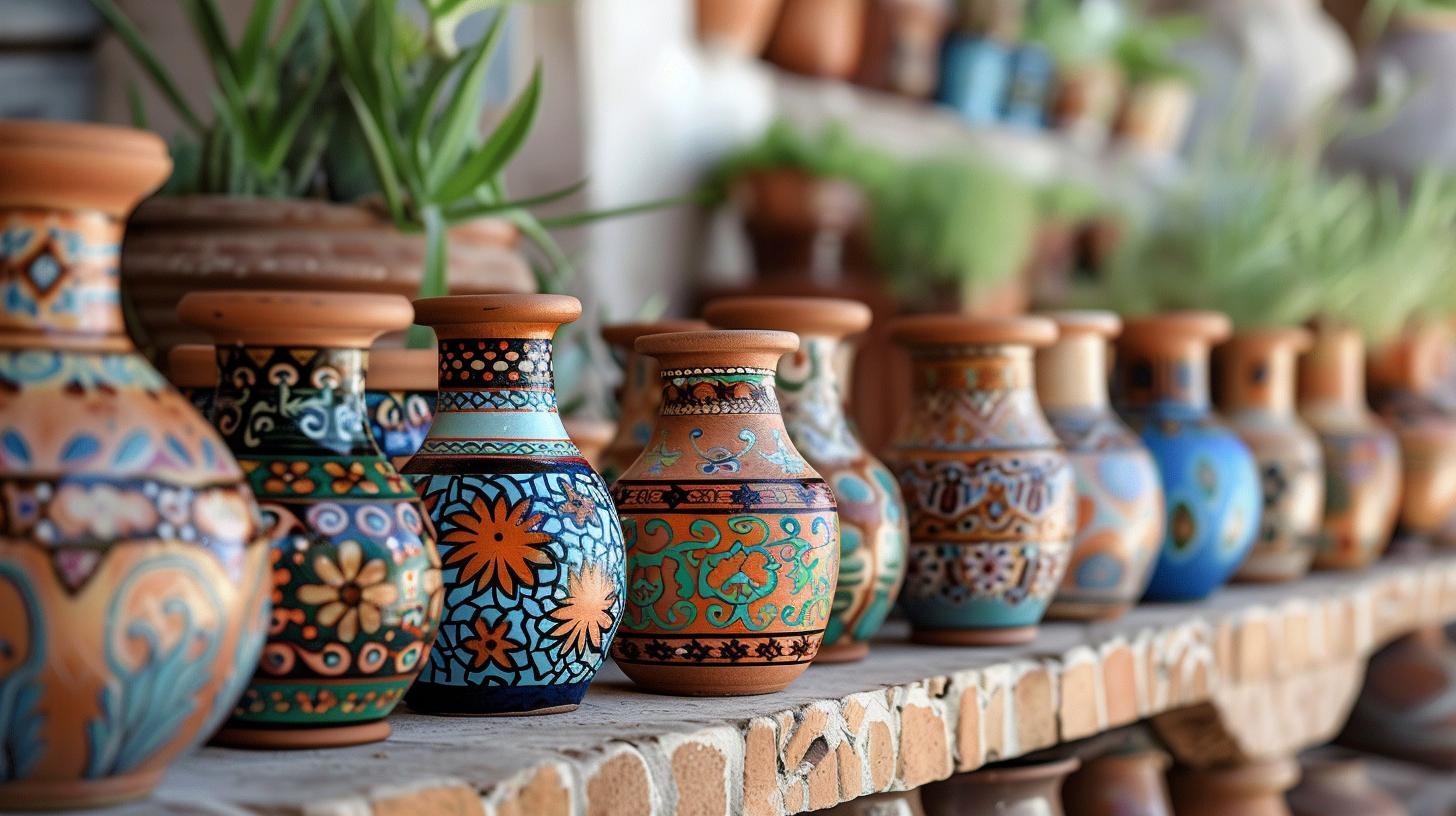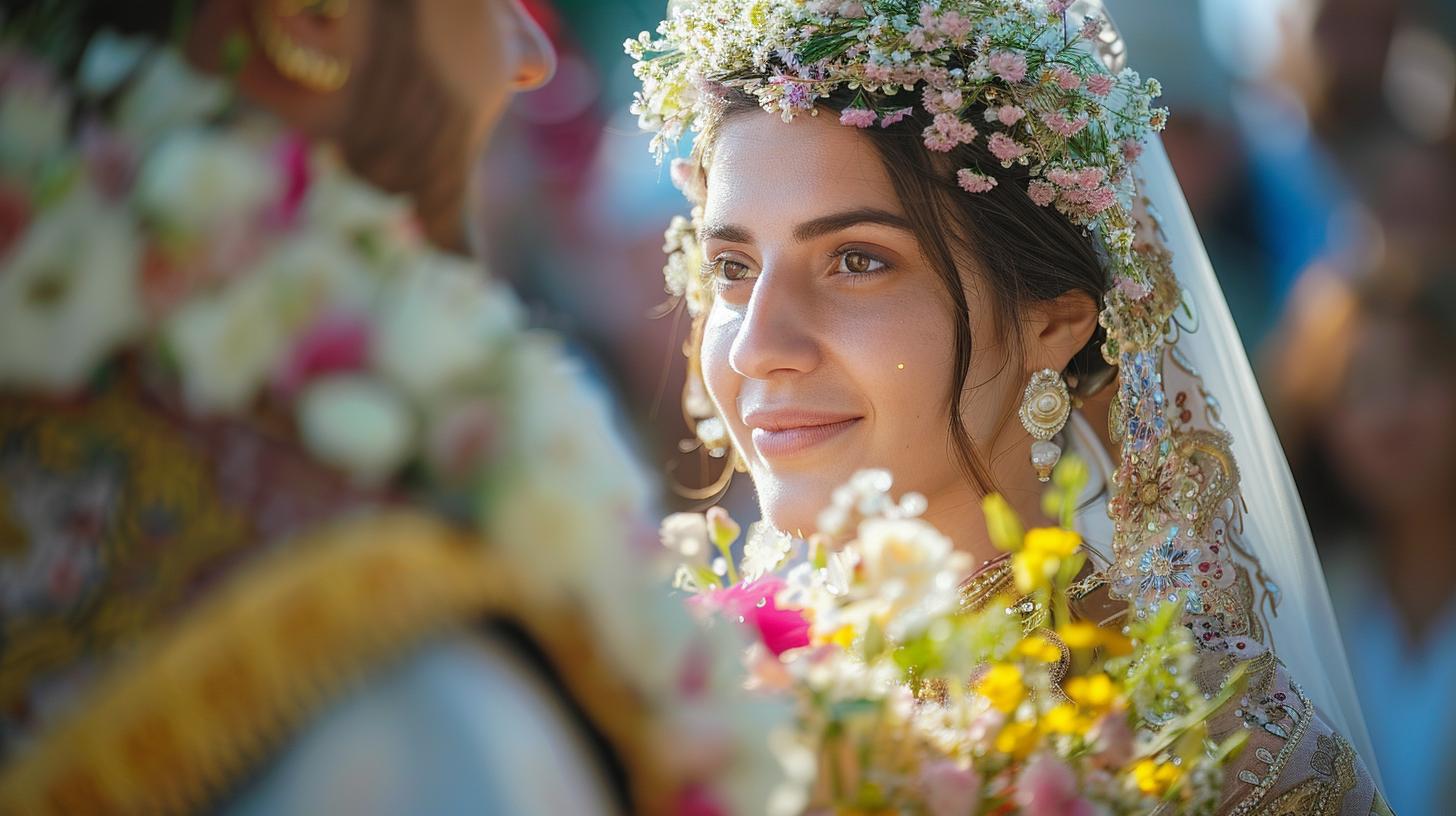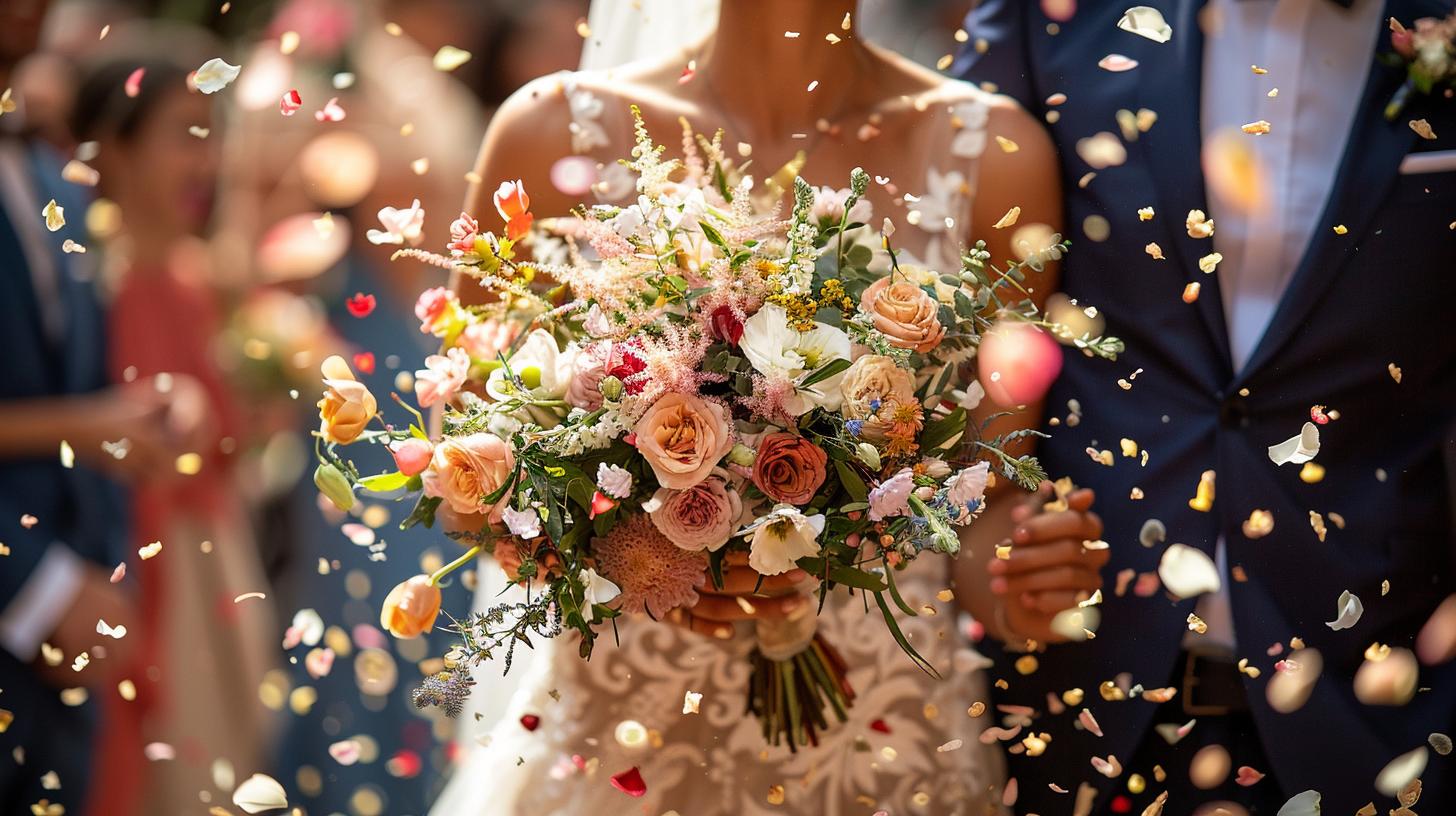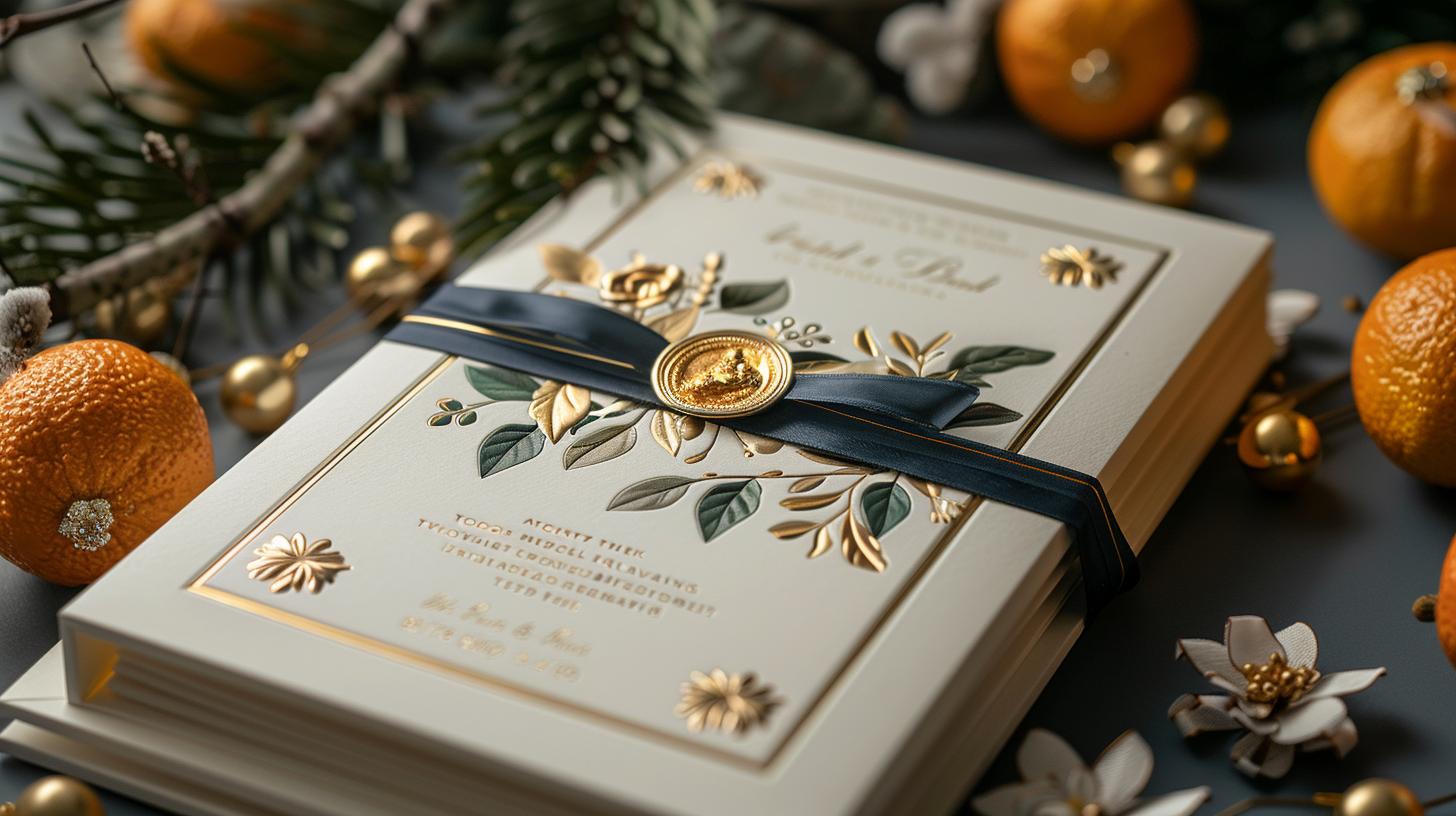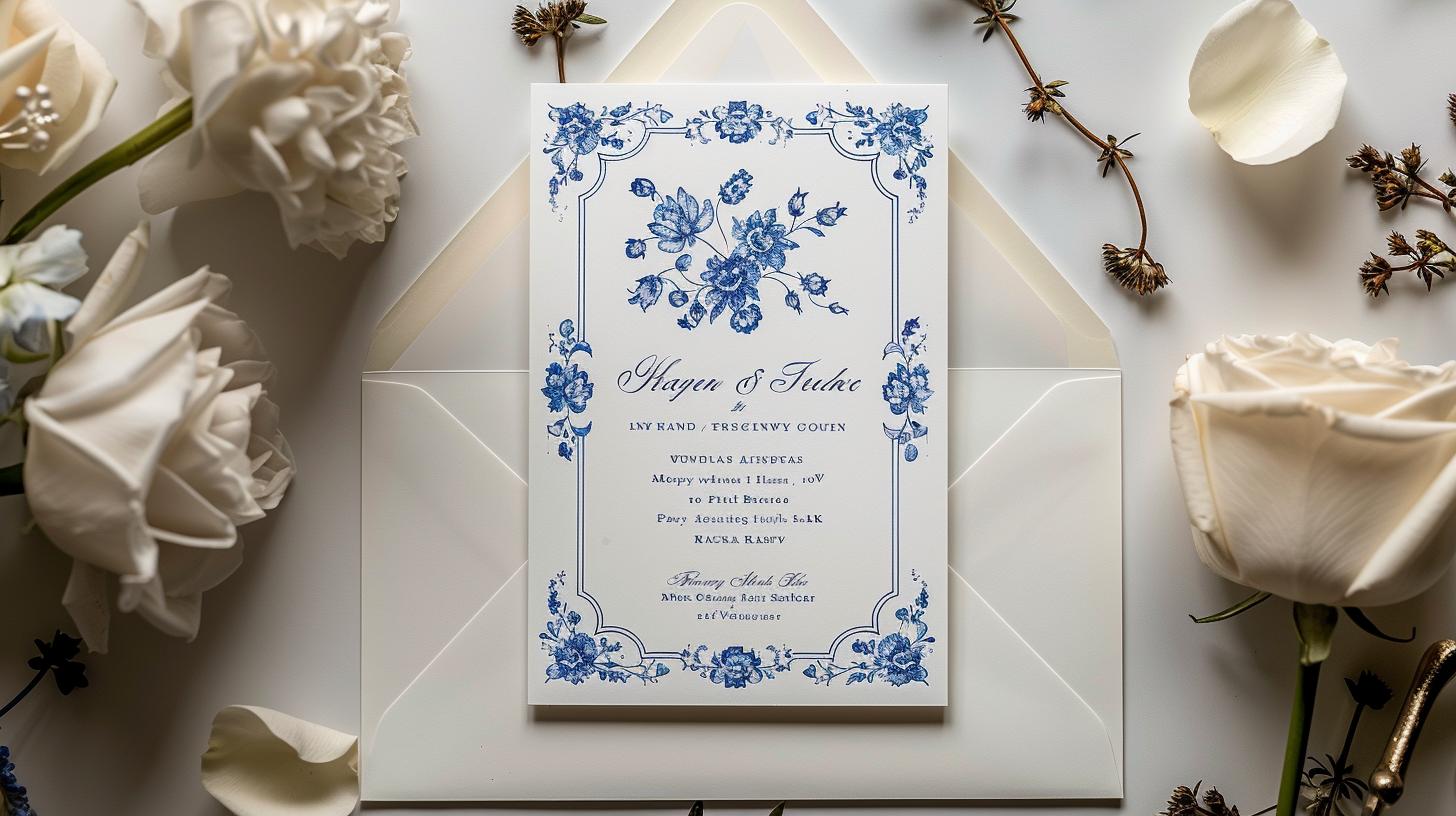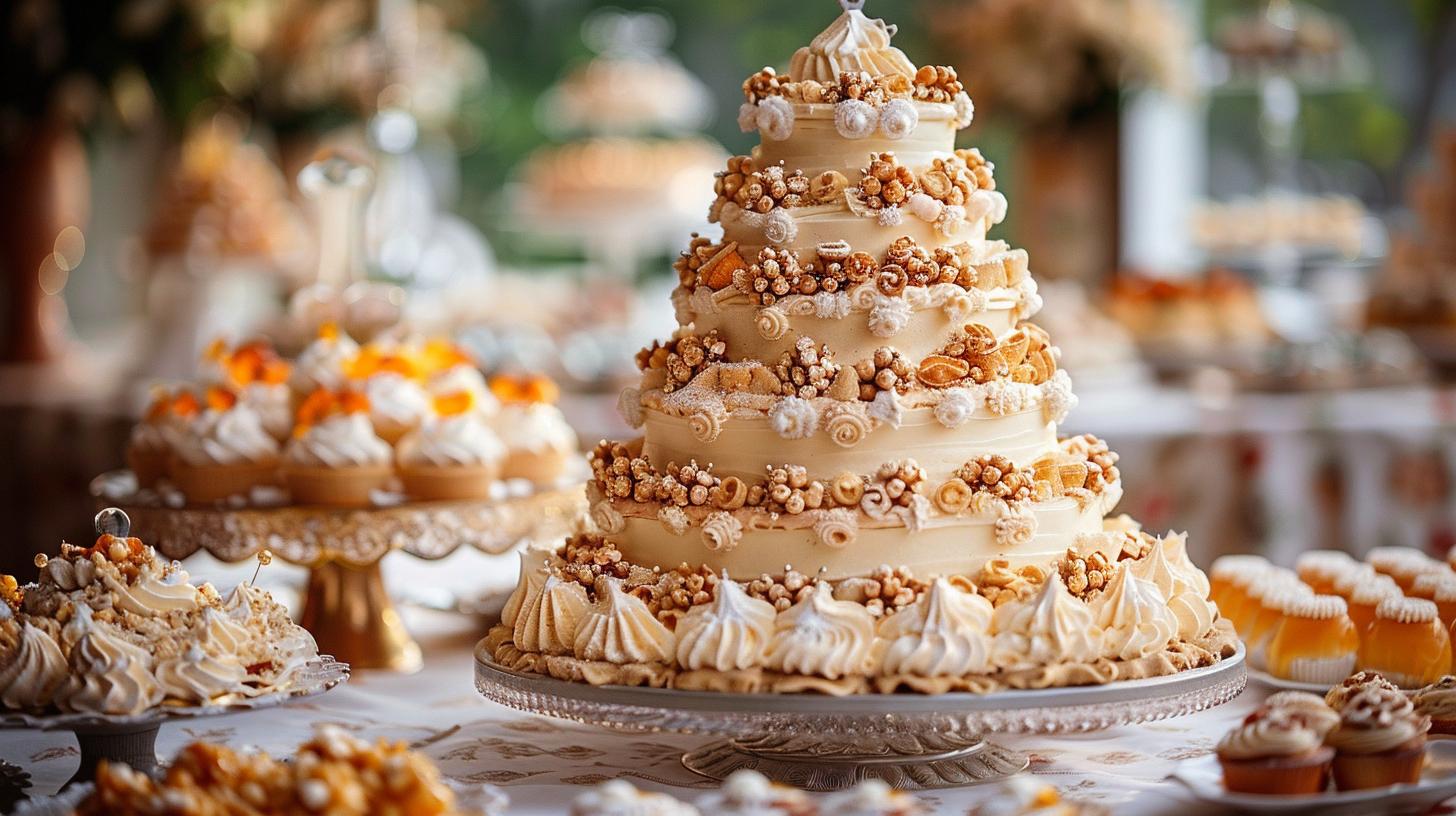Greek Wedding Traditions: Celebrating Love and Culture
Greek weddings are rich in tradition and cultural significance. They reflect the importance of family and community, celebrating love through various rituals and customs passed down through generations. Key elements include the selection of wedding dates, the bridal dowry, and ceremonial practices such as the exchange of wedding crowns.
Post-ceremony festivities often include traditional dances and delicious Greek cuisine, showcasing the joyous spirit of these celebrations.
Cultural Significance of Greek Weddings
The traditions surrounding Greek weddings serve as a cornerstone of cultural identity, highlighting the importance of family, community, and heritage. These rituals have deep meanings that extend beyond the union of two individuals, reflecting a broader societal context.
The Role of Family
Family plays a central role in Greek weddings, emphasizing the interconnectedness of relationships. The wedding is not only a celebration of the couple but also a critical moment for both families, symbolizing a merging of traditions and values.
Families often play active roles in planning the wedding, showcasing their support and involvement in the couple’s journey.
Choosing the Wedding Date
In Greek Orthodox tradition, the selection of the wedding date holds significant meaning. Certain dates are deemed lucky, while others are avoided. For instance, the first two weeks of August are dedicated to the Virgin Mary, making them a time of reflection rather than celebration.
Additionally, the 40 days of Lent before Easter are traditionally not chosen for weddings, preserving the sanctity of the season.
The Bridal Dowry Tradition
The bridal dowry is a deeply rooted custom that originated as a way to support the newlyweds. Traditionally, the bride’s family prepares items such as linens, embroideries, and household goods to bless the couple’s new life together.
This practice underscores the importance of family contributions to the marriage.
Modern Adaptations of Dowries
With changing social dynamics, many contemporary couples are reinterpreting the dowry tradition. While some still follow the custom, others opt for alternative gestures that reflect personal preferences and modern values. This evolution indicates a blend of honoring tradition while embracing new ideas about marriage and partnership.
Rituals of the Ceremony
The Greek wedding ceremony encompasses a variety of rituals that emphasize faith and community. These rituals are not merely ceremonial; they embody the essence of shared beliefs and cultural practices.
The Wedding Crowns (Stefana)
One of the most significant symbols in a Greek wedding is the wedding crowns, known as stefana. These crowns, often made of olive branches or flowers, symbolize the unity of the couple.
During the ceremony, the koumbaro, or best man, exchanges the crowns three times, representing the couple’s journey together as they walk around the altar.
Blessing the Rings
The ritual of blessing the rings holds deep symbolic meaning. At the beginning of the ceremony, the rings are exchanged three times by the koumbaro and blessed by the priest. This act signifies the couple’s eternal love and commitment to one another, anchoring their union in spiritual significance.
Traditional Greek Wedding Dances
Following the ceremony, traditional Greek dances are performed, serving as a joyful expression of culture and community. These dances often embody the spirit of celebration, where guests join together in a circle, sharing in the joy of the newlyweds’ union.
The couple typically shares the last dance of the night, signifying the start of their new life together. The lively atmosphere encourages guests to participate, creating lasting memories and reinforcing communal bonds.
Pre-Wedding Customs
Pre-wedding customs play an essential role in Greek wedding traditions, symbolizing the union of two families and the beginning of a new life together. These rituals reflect respect, commitment, and the cultural significance of marriage within the Greek community.
The Betrothal
The betrothal is a formal engagement process that showcases the respect for family traditions. Traditionally, before any wedding plans are finalized, the groom visits the bride’s family to seek permission to marry their daughter.
This step highlights the importance of family in Greek culture and fosters goodwill between the two families. During this visit, gifts may be exchanged, and blessings are often sought from both sides.
This act of formal engagement emphasizes the couple’s commitment and signifies a serious intention to marry.
Preparing the Bride and Groom
On the wedding day, a series of preparations take place for both the bride and groom, involving close family and friends as a way to ensure harmony and shared joy. These rituals are infused with love, laughter, and cultural significance.
Groom’s Shave
A distinctive custom for the groom is the ceremonial shave, typically performed by the best man. This act represents trust and the strong bond between the groom and his best man.
It symbolizes the groom’s transition into married life, embodying the support of his closest friends as he prepares for this new journey.
Bridal Preparations
Preparation for the bride involves a collective effort from family and friends. The maid of honor leads the bridal party, assisting in dressing the bride and ensuring everything is perfect. The atmosphere during this time is filled with excitement, joy, and anticipation.
Rituals can include dressing the bride in traditional garments, adding meaningful accessories, and preparing her hair in a style that reflects cultural heritage. This supportive environment helps build unity among families and creates lasting memories that are cherished long after the wedding day.
Greek Orthodox Wedding Ceremony
The Greek Orthodox wedding ceremony is a sacred tradition that intertwines faith, community, and cultural heritage. It involves rich rituals that symbolize the spiritual union of the couple and their commitment before God.
Lighting the Candles
During the ceremony, the couple is presented with candles that they will hold throughout the service. These candles symbolize the light of Christ and the enlightenment that faith brings to their married life.
The couple often holds their candles as a reminder that they are called to shine together and support each other in their spiritual journey.
The Common Cup
Another essential ritual is the sharing of wine from a common cup. This act signifies the couple’s unity, symbolizing that they will share their lives together, including all joys and sorrows.
The wine represents the sweetness of life but also acknowledges the challenges they will face as partners. This moment is often accompanied by a blessing from the priest, further emphasizing the sanctity of their union.
Reading of Scripture
Selected passages from the Bible are read aloud during the ceremony to reflect on the nature of love, sacrifice, and the significance of the marriage covenant. These readings serve as a foundation, reinforcing the spiritual value of their commitment, and encouraging the couple to draw strength from their faith throughout their married life.
Koufeta Tradition
As part of the ceremony, guests receive koufeta, sugar-coated almonds, symbolizing purity, fertility, and the endurance of marital love. The five almonds traditionally represent health, wealth, happiness, longevity, and fertility. This custom not only showcases Greek hospitality but also reinforces the community’s role in supporting the couple as they begin their life together.
Post-Ceremony Festivities
After the wedding ceremony, celebrations continue with joyous festivities that reflect the vibrant spirit of Greek culture. These gatherings are marked by delicious food, lively music, and dancing, creating an atmosphere of camaraderie and joy among family and friends.
Traditional Greek Foods
Food plays a central role in Greek wedding celebrations. Guests are treated to an array of traditional dishes that showcase the rich culinary heritage of Greece. The meal often includes:
- Moussaka: A layered dish consisting of eggplant, minced meat, and béchamel sauce, baked to perfection.
- Dolmadakia: Stuffed grape leaves filled with rice, herbs, and sometimes meat, served with a tangy lemon sauce.
- Baklava: A sweet pastry made of layers of filo dough, chopped nuts, and honey syrup, known for its flaky texture and rich flavor.
- Souvlaki: Skewered and grilled meat, often served with pita bread and various sauces.
- Tzatziki: A refreshing yogurt dip made with cucumbers and garlic, a favorite companion to many dishes.
These dishes are often accompanied by an abundance of bread and, of course, a selection of fine wines and ouzo, setting the stage for a memorable celebration.
Dancing and Music
Music and dance are the soul of Greek wedding festivities. The celebration typically features traditional Greek music, which consists of lively tunes that encourage guests to join in the celebration.
Common forms of dance include:
- Tsamiko: A popular dance characterized by high kicks and lively movements, often performed by men in a display of strength and vigor.
- Zeibekiko: A solo dance that allows for personal expression, featuring slow, deliberate movements that highlight the dancer’s skill.
- Sirtaki: A well-known dance that starts slowly and gradually increases in tempo, inviting all guests to participate.
The couple usually shares the last dance, symbolizing their unity and joy.
It is common for guests to pin money onto the couple’s clothing during the dance, a gesture intended to wish them good luck and prosperity.
Reception Games and Activities
To enhance the celebratory spirit, various games and activities take place during the reception. These activities are designed to bring guests together, fostering a sense of community and fun. Some traditional games include:
- The Money Dance: A custom where guests pay to dance with the bride and groom, providing a unique opportunity for guests to offer their blessings and financial support to the newlyweds.
- Team Games: Lighthearted competitions that might involve trivia about the couple, relay races, or other engaging activities that encourage participation.
The laughter and excitement generated by these games create lasting memories and deepen the connections among friends and family, making the post-ceremony celebration a truly special experience.
Modern Adaptations of Greek Weddings
As cultural landscapes evolve, Greek weddings embrace modern elements while still honoring age-old traditions. Couples are finding unique ways to express their identities, merging heritage with contemporary practices.
Venue Selections
The choice of venue plays a crucial role in modern Greek weddings. Traditional settings such as churches and community halls coexist with more contemporary options. Many couples now opt for picturesque outdoor locations, including vineyards, gardens, and beachside resorts.
This shift allows for personalized aesthetics and ambiance.
- Rustic barns and farms are gaining popularity, offering a charming, natural backdrop.
- Urban lofts and chic galleries provide a modern, stylish alternative for city dwellers.
- Destination weddings have become a trend, with couples picking locations in Greece or other scenic locales.
Personalized Vows
Customizing vows has become increasingly common among couples.
This departure from traditional, scripted exchanges allows for a more intimate declaration of love. Modern couples are now crafting personal vows that reflect their journeys, beliefs, and future aspirations.
- Some choose to blend English and Greek expressions, showcasing their cultural duality.
- Others may incorporate anecdotes, humor, or shared experiences, making the moment uniquely theirs.
- These personalized vows often resonate better with guests, leaving a lasting impact.
Integrating Modern Music
The soundtrack of a wedding sets the mood for celebration.
While traditional Greek music remains essential, many couples are increasingly blending modern tunes into their playlists. This fusion creates a lively atmosphere that appeals to all ages.
- Popular contemporary artists often feature alongside traditional instruments.
- DJ services can mix various genres, ensuring a dynamic and inclusive dance experience.
- Live bands may perform a range of music, bringing energy and excitement to the reception.
“My Big Fat Greek Wedding” Franchise
My Big Fat Greek Wedding Franchise
The ‘My Big Fat Greek Wedding’ franchise has become a significant cultural phenomenon, showcasing the intricacies of Greek culture and identity.
The films offer a humorous yet heartfelt exploration of family dynamics, love, and the challenges of merging traditions in modern life.
Overview of the First Film
Released in 2002, ‘My Big Fat Greek Wedding’ tells the story of Toula Portokalos, a Greek woman who falls in love with Ian Miller, a non-Greek man. This romantic comedy quickly became a box office success, resonating with audiences for its relatable themes of cultural identity and familial expectations.
The film adeptly balances humor with poignant moments, reflecting the complex nature of love and acceptance in a multicultural context.
Key Characters
Toula and Ian
Toula Portokalos, portrayed by Nia Vardalos, is the protagonist navigating the challenges of her Greek heritage while pursuing love with Ian Miller, played by John Corbett. Their relationship embodies the push and pull of cultural differences, highlighting Toula’s struggle between embracing her background and seeking her own identity.
Ian, in turn, represents the outsider eager to understand and be accepted by Toula’s vibrant family.
The Portokalos Family
The Portokalos family, led by the spirited matriarch Maria, plays a crucial role in shaping the dynamics of the story. Each family member contributes to the film’s comedic and heartfelt moments, showcasing the warmth and chaos synonymous with Greek families.
Characters like her father, Gus, who is proud of his Greek heritage, and her brother Nick, provide layers of traditional perspective, adding depth to the exploration of cultural identity.
Cultural Impact
‘My Big Fat Greek Wedding’ has had a lasting impact on both the film industry and the representation of Greek culture in media.
Its unprecedented success opened doors for more stories centered around diverse cultural experiences, challenging Hollywood to embrace narratives that reflect a wider array of voices. The film’s portrayal of Greek traditions, such as the wedding rituals and family gatherings, has sparked interest in Greek culture and inspired audiences to celebrate their own heritage.
The humor derived from cultural misunderstandings resonates across different backgrounds, making the film universally relatable. Its legacy continues with sequels and ongoing discussions about cultural representation, affirming its place as a cherished classic in the realm of romantic comedies.
“My Big Fat Greek Wedding 2”
My Big Fat Greek Wedding 2
‘My Big Fat Greek Wedding 2’ is the sequel to the beloved romantic comedy, continuing the Portokalos family’s endearing and humorous journey through love and cultural identity.
Plot Summary
The sequel picks up years after the original film, focusing on Toula and Ian, who are now married and raising their daughter, Paris. As Paris prepares to go to college, she grapples with her Greek heritage and contemplates her future.
The couple learns of a family secret when they discover that Toula’s parents never officially wed, leading them to organize a second wedding for them. This new wedding serves as a backdrop for family dynamics to unfold, showcasing their love, conflicts, and the cultural quirks that characterize the Portokalos family.
The film addresses themes of family loyalty and the balance of modern life with traditional values. Brother Nick and the eccentric family members add laughter and charm, making the wedding preparation both chaotic and heartwarming.
Audience Reception
However, the film also faced criticism for its reliance on familiar jokes and scenarios, leading some to feel that it lacked the freshness of its predecessor. The humor, while heartwarming, was viewed by some as repetitive, and the storyline was sometimes criticized for not offering new insights into the characters’ developments.
Despite these critiques, ‘My Big Fat Greek Wedding 2’ found an audience drawn to its charm, humor, and connection to family.
Cultural Interpretation
This sequel highlights the importance of marriage in Greek culture, where weddings symbolize unity and family ties. The film reinforces the idea that weddings serve not only as ceremonies for couples but also as significant events for extended families.
The lighthearted approach towards cultural expectations is a recurring theme, inviting discussions around the continuity of traditions in a modern context.
It also navigates the complexities of identity, particularly for younger generations balancing between their heritage and contemporary societal norms.
Paris’s journey epitomizes this struggle, as she wrestles with her dual cultural identity while navigating her transition into adulthood.
While entertaining, the film prompts audiences to reflect on the evolving nature of cultural practices and the importance of maintaining family connections.
Overall, ‘My Big Fat Greek Wedding 2’ serves as a joyous celebration of love and family while fulfilling the expectations of fans who cherished the first installment.
“My Big Fat Greek Wedding 3”
My Big Fat Greek Wedding 3
The third installment in the beloved franchise continues to explore the dynamics of the Portokalos family while addressing the evolution of cultural identity within the framework of a wedding celebration.
Continuation of the Story
In “My Big Fat Greek Wedding 3,” the story picks up from where the previous films left off, showcasing the continuing adventures of Toula, Ian, and their extended family. The narrative centers on Toula’s realization that it is time to bring the family together for a joyous yet poignant occasion.
This time, the family embarks on a trip to Greece, aiming to connect with their roots and celebrate not just love, but family heritage.
As the characters navigate their individual journeys, themes of nostalgia, belonging, and the joy of reconnecting are central to the plot.
The film highlights how family gatherings allow for shared experiences and foster deeper connections amongst members, old and new alike. The warmth of the Portokalos family remains at the heart of the story, echoing the sentiments of love, laughter, and a touch of the chaos that defines their gatherings.
Main Themes
Exploration of Identity
Identity plays a crucial role in this film. Characters grapple with what it means to be Greek-American, reflecting on their cultural contributions while embracing their dual heritage. This theme resonates deeply with audiences who share similar backgrounds, making the narrative relatable and poignant.
The Importance of Family
The film underscores the idea that family is not just about blood relations but also about the shared memories and experiences.
Through their journey in Greece, the Portokalos family discovers that love transcends distance and differences.
Unity in Celebration
Celebration remains a key theme, showcasing how traditions and rituals bring families together. The movie features vibrant scenes of dance, music, and food, emphasizing that weddings are more than just ceremonies—they are occasions that unify and strengthen familial bonds.
Critical Reception
<p”upon its=”” release,=”” “my=”” big=”” fat=”” greek=”” wedding=”” 3″=”” garnered=”” mixed=”” reviews=”” from=”” critics=”” and=”” audiences.=””
while=”” some=”” praised=”” heartfelt=”” portrayal=”” of=”” family=”” dynamics=”” cultural=”” ties,=”” others=”” critiqued=”” the=”” film=”” for=”” lacking=”” freshness=”” charm=”” predecessors.=”” return=”” beloved=”” characters=”” exploration=”” new=”” relationships=”” contributed=”” positively=”” to=”” narrative,=”” although=”” felt=”” relied=”” heavily=”” on=”” familiar=”” tropes.<=””
p=””>
Despite the varied reception, the film succeeded in reigniting interest in the franchise and sparking discussions about cultural representation in modern cinema. Its comedic elements combined with genuine moments of reflection resonated with fans who appreciated the mix of humor and heartfelt storytelling.
Ultimately, the film continues the legacy of celebrating Greek culture while navigating the intricacies of family life in a contemporary context.
The cast of “My Big Fat Greek Wedding” plays a crucial role in bringing to life the vibrant dynamics of Greek-American culture.
With a mix of humor and heartfelt moments, each character contributes to the film’s exploration of family, identity, and love.
The Cast and Their Roles
Nia Vardalos as Toula
Nia Vardalos stars as Toula Portokalos, the film’s protagonist. Her character is a Greek woman navigating the complexities of her cultural identity and familial expectations while embarking on a romantic relationship with Ian.
Toula’s journey from a timid, self-conscious woman to a confident bride-to-be forms the emotional core of the story. Vardalos, who also wrote the screenplay, draws on her own experiences to imbue Toula with authenticity and relatability.
Throughout the film, Toula’s transformation is reflective of her struggle between tradition and modernity, showcasing the challenges many face in multicultural marriages.
John Corbett as Ian
John Corbett plays Ian Miller, the charming non-Greek love interest of Toula. His character symbolizes the bridge between two distinct cultures. Ian’s willingness to embrace Toula’s family and heritage adds depth to his role, making him an endearing figure who captures the audience’s heart.
Corbett’s performance highlights the theme of acceptance, as Ian navigates the intricacies of being an outsider in a close-knit Greek family.
His character’s journey adds humor and complexity to the narrative, illustrating the challenges of blending different cultural backgrounds.
Supporting Cast Members
The supporting cast in “My Big Fat Greek Wedding” enriches the storyline through their vibrant portrayals of Toula’s family and friends, each contributing to the film’s comedic and emotional moments.
Louis Mandylor as Nick
Louis Mandylor portrays Nick, Toula’s brother, who embodies the lively and sometimes chaotic nature of the Portokalos family. His banter and interactions offer comic relief while showcasing the inherent loyalty and love within family dynamics.
Joey Fatone as Angelo
Joey Fatone plays Angelo, a close family friend who adds to the humorous atmosphere of the wedding festivities. His character represents the joyous spirit of Greek weddings, contributing memorable moments that resonate with the audience.
Elena Kampouris as Paris
Elena Kampouris takes on the role of Paris, Toula’s daughter. Her character is pivotal as it represents the new generation’s perspective on cultural identity and the balance between embracing traditions and seeking individuality.
Paris’s interactions with both her Greek roots and her modern upbringing highlight the ongoing dialogue about cultural heritage.
Representations of Greek Culture in Film
Film plays a significant role in portraying cultural identities, including Greek traditions. This section explores how Greek culture has been represented in cinema, balancing authenticity with the need for entertainment.
Authentic Representation vs.
Stereotypes
Greek culture has experienced a mixed representation in cinema. On one hand, films like “My Big Fat Greek Wedding” showcase elements of Greek life that resonate with audiences, such as family dynamics, cultural pride, and wedding traditions.
However, these representations often lean towards stereotypes, oversimplifying the rich and diverse tapestry of Greek society.
Key aspects often highlighted in films include:
- Exuberant family gatherings that emphasize unity and celebration.
- Traditional rituals that embody cultural significance, like wedding ceremonies filled with music and dancing.
- Humorous depictions of cultural misunderstandings between Greek and non-Greek characters.
While these elements can engage viewers, they can also reinforce clichés that do not fully capture the depth of Greek heritage.
The challenge remains for filmmakers to balance entertaining narratives with authentic cultural portrayals, ensuring that they represent the community accurately without reducing it to merely comedic elements.
Audience Reactions
Audience reactions to the depictions of Greek culture in films vary widely. Many viewers of Greek descent appreciate the humor and the heartwarming aspects of films that echo their own experiences.
Such films often create a sense of nostalgia and pride among the Greek-American community.
Conversely, some audience members criticize these depictions for perpetuating stereotypes and failing to showcase the complexities and nuances of modern Greek life.
This dichotomy reveals a broader conversation about representation in media, where successful portrayals can enhance cultural understanding but also have the potential to mislead if not handled carefully. Viewers seek stories that reflect a broader perspective, transcending stereotypes and offering a more comprehensive view of Greek culture.
Importance of Cultural Consultants
The role of cultural consultants in film production is becoming increasingly important. These professionals provide valuable insights that can help filmmakers create more accurate representations of Greek culture. By involving individuals who have a deep understanding of cultural practices, filmmakers can avoid common pitfalls associated with cultural misrepresentation.
Cultural consultants can assist in various areas, such as:
- Ensuring that scripts authentically portray traditional practices, such as weddings and family gatherings.
- Providing guidance on language use, ensuring dialogue reflects real-life experiences.
- Advising on visual elements, such as costumes and set designs that accurately represent Greek heritage.
Engaging cultural consultants not only enhances the quality of the storytelling but also fosters collaboration and respect between filmmakers and the communities they aim to portray.
This practice can lead to more immersive and authentic cinematic experiences that honor the traditions and values of Greek culture.
The influence of Greek weddings in cinema has played a significant role in shaping perceptions of Greek culture.
Notably, films have captured the vibrancy and richness of these traditions while also contributing to a broader understanding of cultural nuances.
Influence of Greek Weddings in Cinema
Highest Grossing Rom-Coms
Romantic comedies featuring Greek weddings have consistently ranked among the highest grossing films, showcasing the universal appeal of love stories entwined with cultural traditions. A few notable titles include:
- My Big Fat Greek Wedding – The blockbuster hit that redefined the genre and became a cultural landmark.
- Error 404: Greek Wedding – A lesser-known film that humorously explores cultural clashes in modern relationships.
- The Greek Wedding Party – A film highlighting the joys and challenges of blending families during a wedding celebration.
These films, often centered around weddings, highlight the importance of family, tradition, and the humorous trials of love.
They resonate with both Greek audiences and those outside the culture, opening a dialogue about multicultural romantic relationships.
Legacy of ‘My Big Fat Greek Wedding’
This film has left an indelible mark on both cinema and popular culture. Its success ignited interest in Greek traditions and the dynamics of Greek-American families. Key aspects of its legacy include:
- Bridging Cultural Gaps – The film’s portrayal of a Greek-American wedding has fostered greater appreciation for diversity in storytelling.
- Empowerment of Greek Representation – It paved the way for other stories centered around Greek culture and family life in mainstream media.
- Humor and Relatability – The comedic approach to cultural differences makes the film relatable to a wide array of audiences, enhancing its long-lasting relevance.
Future of Greek Culture in Film
The ongoing evolution of cinematic portrayal of Greek weddings suggests a promising future, characterized by a blend of tradition and modernity.
Emerging filmmakers are more frequently incorporating authentic cultural elements, leading to captivating narratives. Trends to watch include:
- Greater Focus on Authenticity – Contemporary films will likely feature cultural consultants to ensure genuine representation of Greek traditions.
- Diverse Storylines – Future projects may expand the narrative scope, exploring multicultural relationships beyond the traditional frameworks.
- Integration of Modern Themes – Modern challenges faced by couples navigating their identities and family expectations are likely to emerge in new films.
As filmmakers continue to explore the intricacies of Greek weddings, audiences can expect a dynamic reflection of heritage that embraces the past while looking toward the future.
</p”upon>.

